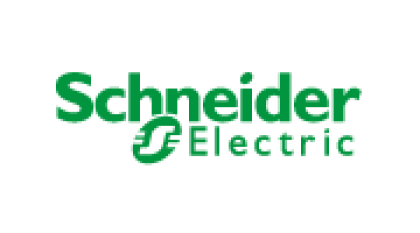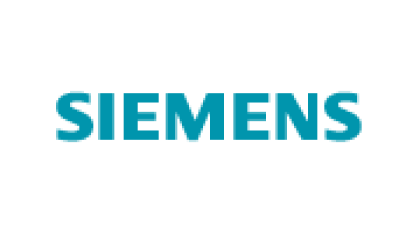Exploring Industrial Automation Products: Enhancing Efficiency and Performance
In today's rapidly evolving industrial landscape, automation plays a crucial role in enhancing efficiency, productivity, and competitiveness. Industrial automation products encompass a wide range of technologies designed to automate and optimize manufacturing processes, reduce manual intervention, improve quality control, and enable predictive maintenance. In this article, we will delve into the world of industrial automation products, exploring their benefits, applications, and key players in the industry.
Understanding Industrial Automation Products
Industrial automation products cover a diverse range of technologies and solutions that streamline production processes across various industries. These products include but are not limited to:
- Programmable Logic Controllers (PLCs): PLCs are microprocessor-based controllers that automate electromechanical processes by controlling machinery and equipment through digital and analog inputs/outputs.
- Human-Machine Interfaces (HMIs): HMIs provide operators with visual interfaces to monitor and control industrial processes, allowing for real-time data visualization, diagnostics, and adjustments.
- Industrial Robots: Robots are used for tasks such as assembly, welding, painting, material handling, and inspection, offering precision, speed, and repeatability in manufacturing operations.
- Sensors and Actuators: Sensors detect changes in physical properties such as temperature, pressure, proximity, and position, while actuators control motion or operation based on sensor inputs.
- Variable Frequency Drives (VFDs): VFDs control the speed and torque of electric motors by varying the frequency and voltage of the power supplied, contributing to energy savings and precise motor control.
- SCADA (Supervisory Control and Data Acquisition) Systems: SCADA systems monitor, gather, and process data from remote locations, enabling centralized control and management of industrial processes.
- Industrial Networking and Communication Devices: These devices facilitate seamless connectivity and data exchange between automation components, ensuring efficient communication and coordination.
Benefits of Industrial Automation Products
The adoption of industrial automation products offers several benefits to manufacturers and industries, including:
- Increased Productivity: Automation reduces manual labor, minimizes downtime, and speeds up production cycles, leading to higher productivity and output.
- Improved Quality Control: Automation systems ensure consistent product quality through precise control, monitoring, and automated inspection processes.
- Enhanced Safety: Automation reduces the risk of accidents and injuries by automating hazardous tasks and implementing safety features such as emergency stop systems and protective barriers.
- Cost Savings: Automation leads to reduced labor costs, energy savings through optimized processes, minimized waste, and improved resource utilization.
- Predictive Maintenance: Automation products enable predictive maintenance by monitoring equipment performance, detecting anomalies, and scheduling maintenance tasks before failures occur, thereby reducing downtime and maintenance costs.
Key Players in Industrial Automation
Several key players dominate the industrial automation market, offering innovative products and solutions tailored to various industries. Some of the prominent companies in this space include:
- Siemens: Siemens is a global leader in industrial automation, offering a wide range of products such as PLCs, HMIs, drives, motors, and control systems under its various product lines like SIMATIC and SINAMICS.
- Schneider Electric: Schneider Electric provides comprehensive automation solutions including PLCs, HMIs, VFDs, motor control products, and SCADA systems under its Modicon, Altivar, TeSys, and EcoStruxure platforms.
- ABB: ABB specializes in robotics, drives, motors, and power distribution systems for industrial automation applications, focusing on efficiency, reliability, and sustainability.
- Rockwell Automation: Rockwell Automation offers PLCs, HMIs, drives, motion control systems, and industrial networking solutions under its Allen-Bradley brand, catering to diverse automation needs.
- Mitsubishi Electric: Mitsubishi Electric provides automation products such as PLCs, HMIs, servo motors, VFDs, and robotic systems, known for their performance, precision, and reliability.
Applications of Industrial Automation Products
Industrial automation products find applications across various industries, including:
- Manufacturing: Automation is widely used in manufacturing processes for assembly, machining, packaging, and quality control, improving efficiency and product consistency.
- Automotive: Automation in the automotive industry includes robotic assembly lines, automated welding, painting, and inspection systems, ensuring precision and high production volumes.
- Pharmaceuticals: Automation in pharmaceutical manufacturing ensures adherence to strict quality standards, precise dosing, packaging, and tracking of medications.
- Food and Beverage: Automation optimizes food processing, packaging, and distribution processes, ensuring food safety, quality, and traceability.
- Energy and Utilities: Automation is used in power generation, distribution, and monitoring systems, optimizing energy usage, grid management, and predictive maintenance.
- Logistics and Warehousing: Automation in logistics includes automated guided vehicles (AGVs), warehouse management systems, and sorting technologies for efficient inventory management and order fulfillment.
Future Trends in Industrial Automation
The future of industrial automation is marked by emerging technologies and trends such as:
- Industry 4.0: The integration of IoT (Internet of Things), AI (Artificial Intelligence), big data analytics, and cloud computing in industrial automation, enabling smart factories and predictive analytics.
- Digital Twins: Digital twin technology creates virtual models of physical assets, allowing for simulation, analysis, and optimization of processes, equipment, and systems.
- Robotics and Cobots: Collaborative robots (cobots) working alongside humans, AI-powered robots, and advanced robotic automation solutions for flexible and agile manufacturing.
- Cybersecurity: Focus on cybersecurity measures to protect industrial automation systems from cyber threats, data breaches, and unauthorized access.
- Sustainability: Emphasis on sustainable manufacturing practices, energy-efficient automation solutions, and environmental impact mitigation.
In conclusion, industrial automation products play a pivotal role in driving efficiency, productivity, and innovation across industries. The adoption of automation technologies not only enhances operational performance but also paves the way for the future of smart and connected manufacturing. As industries continue to embrace automation, staying abreast of the latest technologies and trends is essential for achieving competitive advantage and sustainable growth in the dynamic landscape of industrial automation.


























